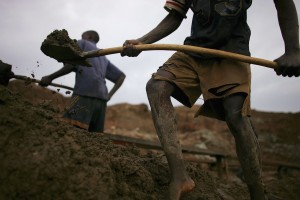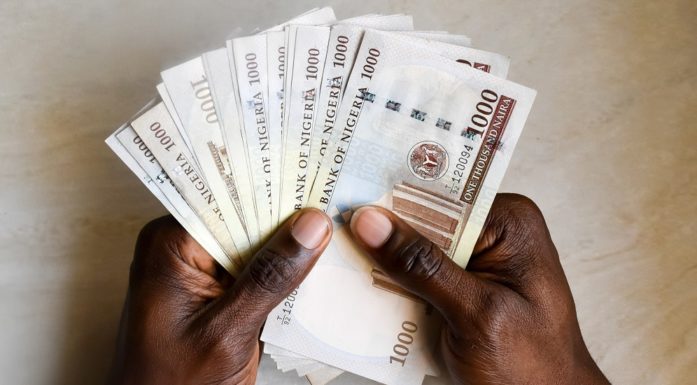A new look at corruption and greed
Substantial revenues from natural resources bring opportunities, but also problems, in developing countries. A new research project will look at best practices in resource management.
Can increased transparency in the management of natural resources transform them into a blessing rather than a curse? A new international study hopes to provide some answers.
Valuable natural resources can generate high revenues. But without regulation, the same resources are fertile ground for capitalist predators and political leaders who exploit their positions and hand out money to their own followers. This leads to corruption and attempts to quaff from the state treasury, according to Associate Professor Päivi Lujala of NTNU’s Department of Geography.
Poor countries may be rich in natural resources, and yet the revenues reaped from them may not trickle down to the majority of citizens. Wars have been started and kept going because different groups have vied to control natural resources such as minerals and forests, oil, gas or gemstones.

How can more people benefit from natural resource revenues? In this photo, digging for gold in DR Congo. Photo: Thinkstock
“But valuable natural resources also offer opportunities for people to get out of poverty, while giving countries the chance to promote economic development and maintain peace and stability,” Lujala says.
The distribution of both resources and the income from them is very important, since many natural resources are not renewable.
Lujala will lead the new research project. The hope is that the results can provide practical assistance to the authorities in different developing countries, so that natural resources and income from them can be managed better.
- You might also like: The Hidden Companies
Increased transparency
The international community and various activist groups believe that increased transparency around revenues and how they are used is important to achieve improved management of natural resources and a more equitable distribution of income. This information must be made available to the general populace, and it also needs to be understandable and able to provide a basis for action, if needed.
But is this how things really work?
Lujala believes that this assumption is based on relatively thin evidence. Researchers in the new project are asking three main questions:
- Does increased transparency lead to increased accountability in the management of revenues from valuable natural resources in developing countries?
- If so, under what circumstances does increased transparency help?
- If not, what is the reason?
What works?
The project’s researchers will specifically assess how existing organizations and institutions currently function.
Deciphering acronyms
Acronyms - sometimes wryly referred to as alphabet soup - are common in the academic and aid programme world. Here's a key to the most important acronyms in this article.
- The Peace Research Institute Oslo (PRIO) conducts independent and transparent research on the conditions for peaceful relations between nations and other groups, and on conflicts and conflict prevention.
- The Environmental Law Institute (ELI) provides impartial legal assistance to governments, organizations and other people who are interested in the use of natural resources. The aim is to preserve the environment while helping economies to flourish and citizens to benefit from the proceeds.
- Extractive Industries Transparency Initiative (EITI) is a global coalition of governments, companies and various private groups working to increase transparency in the management of natural resources and the distribution of income.
Sources: snl.no and the organizations' own pages
Several countries have set up local funds to distribute a portion of the revenues back to the areas from which companies extract raw materials. How do these funds operate? Do they practice transparency and accountability?
Project researchers will also look at what it takes for increased revenue transparency and free information to make an impact. There is a big difference between simply publishing the information on a website and making it accessible enough for most people to make use of it.
Transparency alone may not be enough. Knowing that something is wrong doesn’t help if the government or politicians can’t be held accountable for their actions.
This type of research is both expensive and time consuming, so the researchers have adopted several methods for the project. They will:
- Review and assess previous studies of the EITI, and conduct statistical analyses comparing EITI-compliant countries with non-EITI-compliant countries.
- Collect information on existing local funds that distribute revenues back to resource extraction areas, and analyse the collected material with a focus on transparency and accountability.
- Conduct fieldwork interviews with relevant stakeholders in relation to both the EITI and local funds. Stakeholders will include everyone from media representatives and politicians to local citizens.
- Conduct extensive surveys in Ghana and Liberia, if possible, and do a quantitative and qualitative analysis of the material.
- Compare all countries through quantitative studies that look for correlations between increased transparency, good governance generally, natural resource wealth and economic growth and development.
- Develop theories to explain what they find.
Challenges
Conducting surveys tends to be complicated and expensive. They involve more than just asking questions and getting candid answers. The questions should be posed by local people, who preferably have similar backgrounds to those being surveyed, e.g. people from a rural background should interview other rural people.
Outstanding Academic Fellows
• NTNU has selected 17 young university researchers for its new Outstanding Academic Fellows programme, which is designed to give them the opportunity to grow their careers.
• The researchers, who are already internationally recognized, work on topics ranging from economic history to nanotechnology and medical science.
• With the support of international mentors, research visits, get-togethers, money and the expertise of the Norwegian Olympic Committee in talent development, the fellows will have the opportunity to improve their competitiveness in the international research world.
It is still unclear whether researchers will be able to conduct their survey in Liberia as initially planned. The Ebola outbreak complicates the matter and may necessitate doing the survey at a later date.
One alternative may be to join another project, such as a survey that will soon be implemented in Ghana.
Maarten Voors from Wageningen University in the Netherlands has a long history of similar work experience and has advised the research team.
Levon Marsland from NTNU has recently been in Liberia as part of his doctoral work, which is also connected with the project.
Planning meetings are underway and include project participants from NTNU’s Departments of Geography, Economics, and Sociology and Political Science, as well as Christa Brunnschweiler from the University of East Anglia, Siri Rustad of PRIO, and Carl Bruch from ELI. (See fact box.)
Päivi Lujala has been named an NTNU Outstanding Academic Fellow, one of 17 young researchers who are already internationally recognized and will have the opportunity to improve their competitiveness in the international research world.






